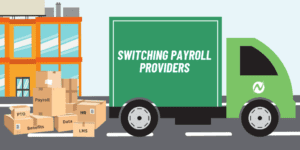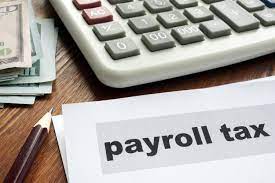Share
Taxes are a major part of the payroll process. Just like your business needs to pay employees, it also needs to pay taxes. Payroll taxes help your employees manage their annual tax burden, and by checking all the paperwork, ultimately prevents costly fines for your business.
Unrelated to the profits of your business, payroll taxes are part of the payroll process. Whether employees are exempt or non-exempt, you still need to withhold the correct amount for taxes.
Netchex’s Payroll and Tax solution enables your company to get employees paid faster and file taxes automatically—ensuring everything is accurate and on time.
What are payroll taxes?
Payroll taxes are deducted from your employee paychecks. Although state and federal income taxes are included, payroll taxes are more than just income tax. Depending on your location, there may also be local taxes.
Payroll tax also includes government programs like Medicare and Social Security, covered by the Federal Insurance Contributions Act (FICA). Employers match the employee contribution for some of these programs, so it’s a little more complicated than just paying your employees’ income taxes.

So, how much comes out of your paycheck (generally)?
- 6.2% of gross wages goes to Social Security tax
- 1.45% of gross wages go to Medicare tax
- Employers match these percentages for a grand total of 15.3%
What types of payments are included in payroll taxes?
In addition to Federal income tax, most states have their own income tax. Local taxes also vary widely. There are nine states without income tax:
- Alaska, Florida, Nevada, New Hampshire, South Dakota, Tennessee, Texas, Washington, and Wyoming
Additional taxes may also include:
- Federal Unemployment Tax Act (FUTA) taxes
- State unemployment taxes
- Medicare
- Social Security
- State Disability Insurance (SDI)
Healthcare, worker’s compensation, and retirement are generally pre-tax deductions. This means those payments are deducted from the employee’s earnings before the income taxes are calculated.
Who pays payroll taxes?
A lot of people complain about the hassle and confusion of filing their personal tax returns once a year, so it’s probably best that employers manage the payroll taxes on every paycheck.
The biggest exceptions are contractors, freelancers, and small business owners. From your company’s perspective, these exceptions are the people handled with a 1099 form instead of the usual W-4’s and W-2’s. Depending on the scale of their business and earnings, contractors may pay taxes annually or quarterly, but that’s not your responsibility.
For employees, on the other hand, your company is 100% accountable for administering their payroll taxes. As mentioned previously, the employer also matches employee contributions to programs like Medicare and Social Security.
When are payroll taxes due?
For most smaller businesses, payroll taxes are due on the 15th of each month. For larger businesses managing larger amounts, payments may be made every two weeks. If that falls on a weekend or legal holiday, then the due date is moved to the following business day.
Self-employed people and contractors, who are responsible for their own taxes, may pay quarterly or annually. As with employers, the contractors with more income (and paying more in taxes) are the ones paying more frequently.
How are payroll taxes reported and paid?
When you’re onboarding new employees, you probably already have them complete W-4 tax forms. The information on the W-4 lets you know how much to withhold for payroll taxes.
You can pay by percentages or wage brackets. Brackets are recommended for smaller businesses and anyone who isn’t outsourcing their payroll taxes.
Withholdings will be reported quarterly, and you’ll want to keep records accessible. Once a year, you’ll also send out W-2’s and 1099 forms to employees and contractors.
Payments can be sent directly to the Treasury Department through their free online portal or over the phone. Many businesses opt to use a third-party service and automate payments.
How costly are payroll tax penalties?
Mistakes on your business taxes can cause unnecessary expenses. Depending on the type of mistake and how long it takes to fix the problem, the penalties can be significant.
The best options are to double-check your numbers and pay on time. The employer is completely liable if the wrong amount is withheld from employee paychecks, even if you hired an outside bookkeeper. Payroll software that handles payroll taxes is the safest bet to ensure compliance.
Penalties are added when payroll taxes are submitted late. These fees can increase up to 15% depending on how late the payments are sent. In addition to fines, missed payments accumulate interest, ultimately costing you more in the long run.
Your business can also be fined for mistakes classifying employees and contractors. Even though employees aren’t liable for mistakes made by their employer, they can still be impacted by the consequences. Missed or insufficient payments can affect an employee’s access to government programs and benefits, such as insurance.
Nobody would claim that payroll taxes are fun, but they’re a very important part of doing business. Fortunately, payroll software is available to help streamline the process and keep all your key documentation organized. Get a demo of payroll processing software and other solutions available from Netchex.
Discover how Netchex’s payroll software can help ensure your payroll taxes are taken care of easily and accurately :
Related articles

Payroll Management

Show Me the Money: Earned Wage Access Explained

A Comprehensive Guide to Switching Payroll Providers

